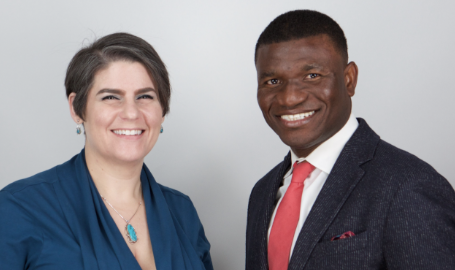
CBT for Psychosis (Self-Study)
Self-Study
There is a growing need and increasing interest in Cognitive Behavioral Therapy (CBT) for individuals with psychosis. However, there is also a significant amount of confusion surrounding its application. Questions arise about its mechanics and how clinicians should approach the goals and methods when working with individuals experiencing psychosis. Equipping clinicians with a well-defined set of CBT tools can be a valuable asset, enabling them to efficiently and effectively assist individuals dealing with psychosis.
Hosted by SWEET Institute
Join us for this life-changing Conference!
By engaging in theoretical discussions, examining case studies, and participating in practical exercises, you will acquire the essential knowledge and skills required for the proficient application of CBT techniques and interventions in the treatment of psychosis.
What will you learn from this Virtual Conference on CBT for Psychosis?
- Acquire the skills to craft behavioral experiments in CBT for psychosis.
- Develop expertise in conducting cognitive restructuring for psychosis.
- Learn to create gradual exposure plans in CBT for psychosis and break the automatic connection between anxiety and ritual behaviors.
- Achieve mastery in the 10 Steps of CBT for Psychosis.
Here's what you can expect:
- Interactive Meeting-Style Setup: Cameras and mics will be open, allowing everyone to be heard and seen throughout the event. You have the option to keep your camera on or off as you prefer.
- Direct Communication: You'll have the opportunity to interact directly with SWEET Facilitators and fellow attendees. Engage in discussions, ask questions, and share your insights.
- Breakout Rooms for Small Group Interactions: Enjoy 1:1 and small group interactions in breakout rooms, creating a personalized and engaging experience.
- Access to the Chat: You can use the chat feature to communicate with others, share ideas, and connect throughout the conference.
- A Sense of Togetherness: Despite being virtual, our conference will create an immersive experience, making you feel like we are all in the same room.
Join Us Now!
Or pick from one of our Packages!
Who is this for?
This course is for any clinician invested in learning new or honing existing skills to be able to use in dynamic ways to support their patients and clients and to end suffering.
KEY INFORMATION:
This course is eligible for 2 CEUs for Licensed Social Workers, Licensed Mental Health Counselors, Licensed Marriage and Family Therapists, and Psychologists in New York State
For more information about CEU approval, please click here.
Format: Self-Study Online Seminar

"I love how organized and patient Dr. Sidor was in explaining the reasons why CBT works in depress clients." - Marsha, LMSW

"Love your courses and facilitators, all so positive and knowledgeable. I love how you involve everyone in the classes!" - Jaime, LCSW

"The lecture is excellent with relevant information. I would be interested in other training with the same format." - Ruth, LCSW-R
Join Us Now!
Or pick from one of our Packages!
Your Facilitator and Co-Facilitator

Mardoche Sidor, MD, is a Harvard-trained Quadruple Board Certified Psychiatrist, Assistant Professor of Psychiatry at Columbia University, School of Physicians and Surgeons, trained in and taught all major psychotherapeutic modalities, including and not limited to CBT, DBT, Family Systems, and Psychodynamic Psychotherapy. He is also the author of 11 books including Journey to Empowerment, Discovering Your Worth, The Power of Faith. and, The Art of Living. Dr. Sidor has worked both as a primary care physician and Medical Director in three different settings, including a Chief Medical Officer of the Center for Alternative Sentencing and Employment Services (CASES). He is a main facilitator for the SWEET Institute. His 11th book, entitled, NLP for Clinicians is now available to the public.
Karen Dubin, PhD, LCSW, is a Columbia-trained Social Worker with wide clinical, teaching, and supervision experience. She also has a background in management, mentorship, and leadership that spans more than 20 years. Her added passion is in advocacy and coaching. She has previously held Executive level positions, and two other directorships in different organizations. She is currently Adjunct Faculty at Columbia University School of Social Work and Adelphi University School of Social Work. She also maintains a private practice, provides supervision, and clinical and management training. She is also a personal and executive-level coach. She is a main facilitator for the SWEET Institute.
SWEET Curriculum







